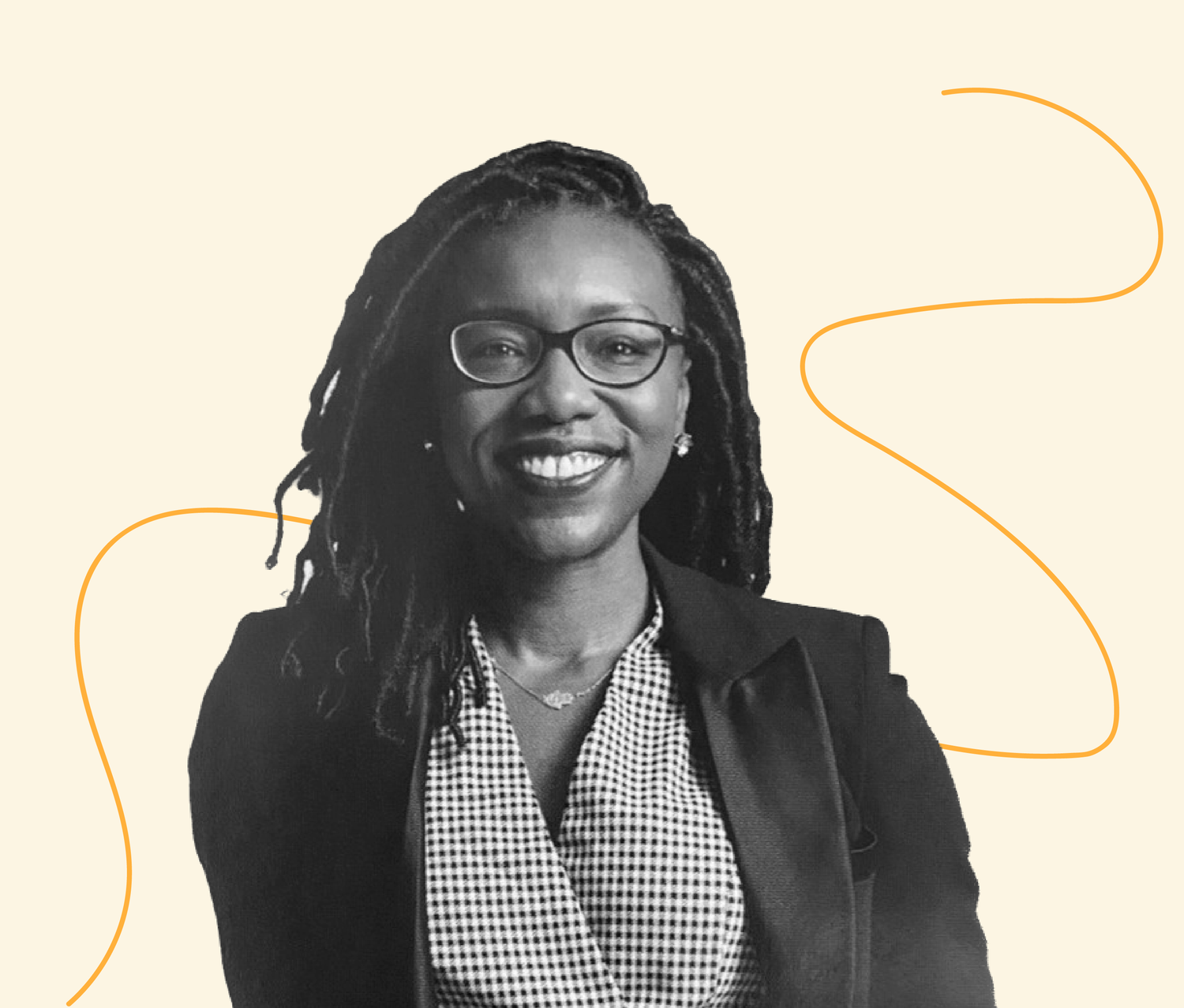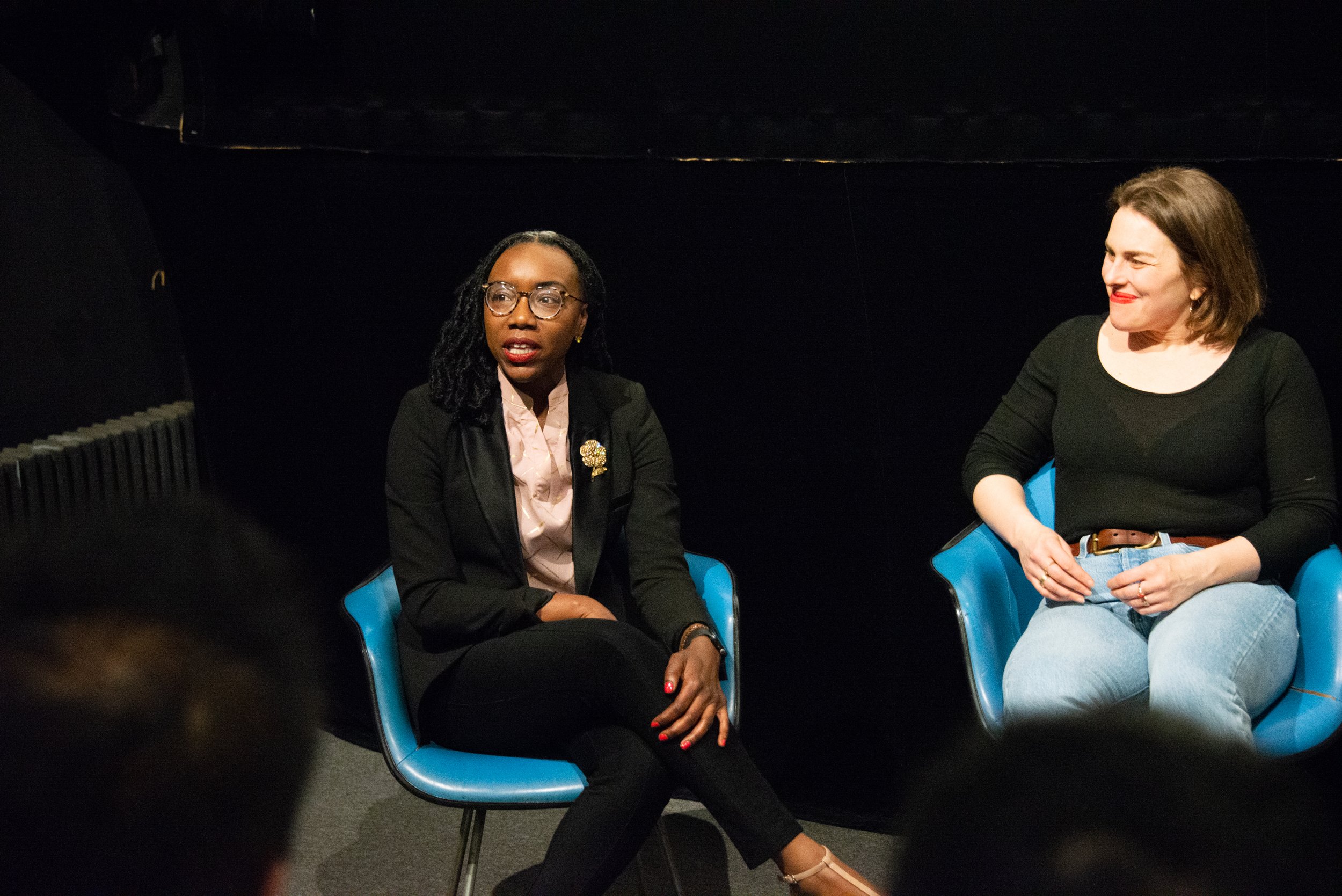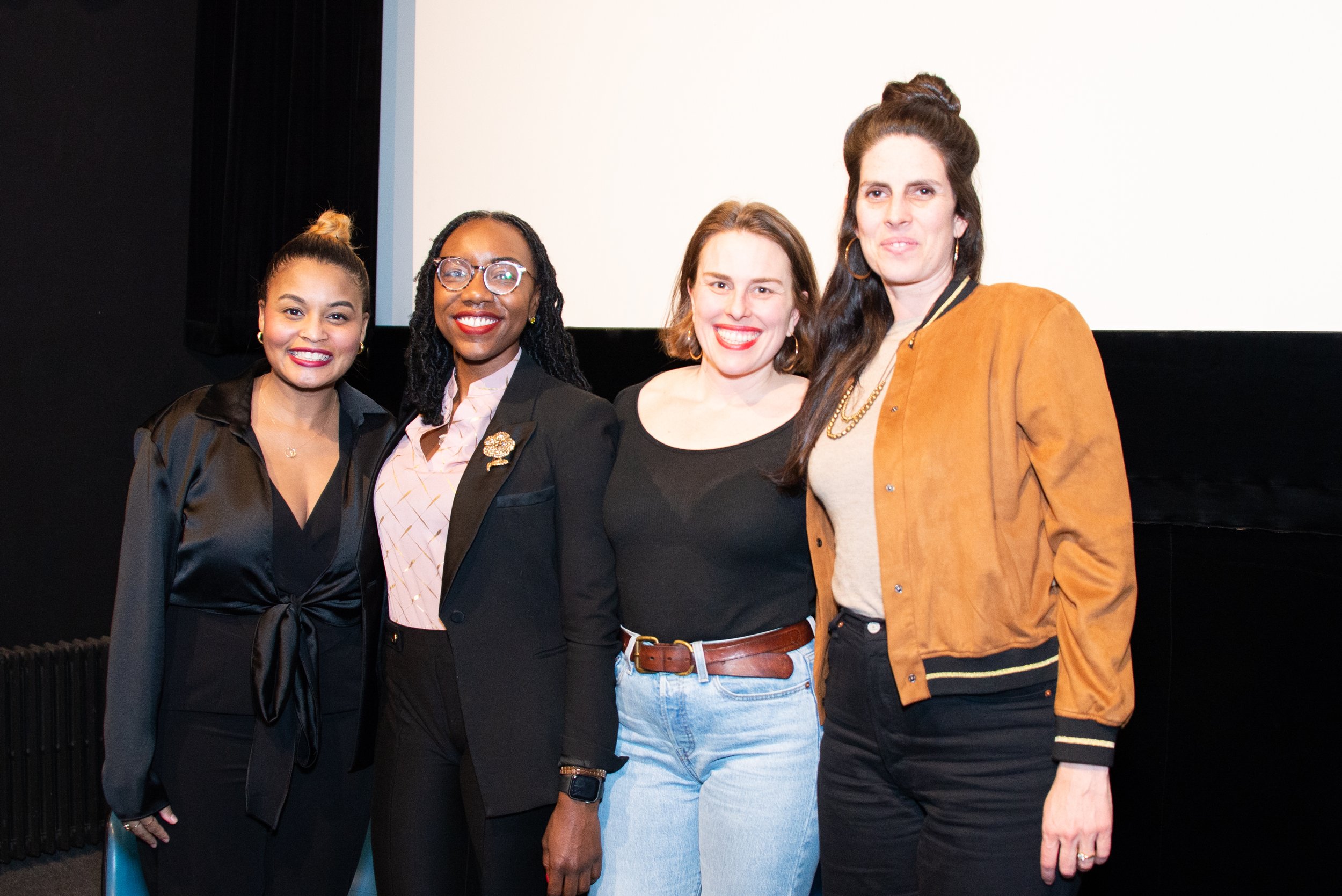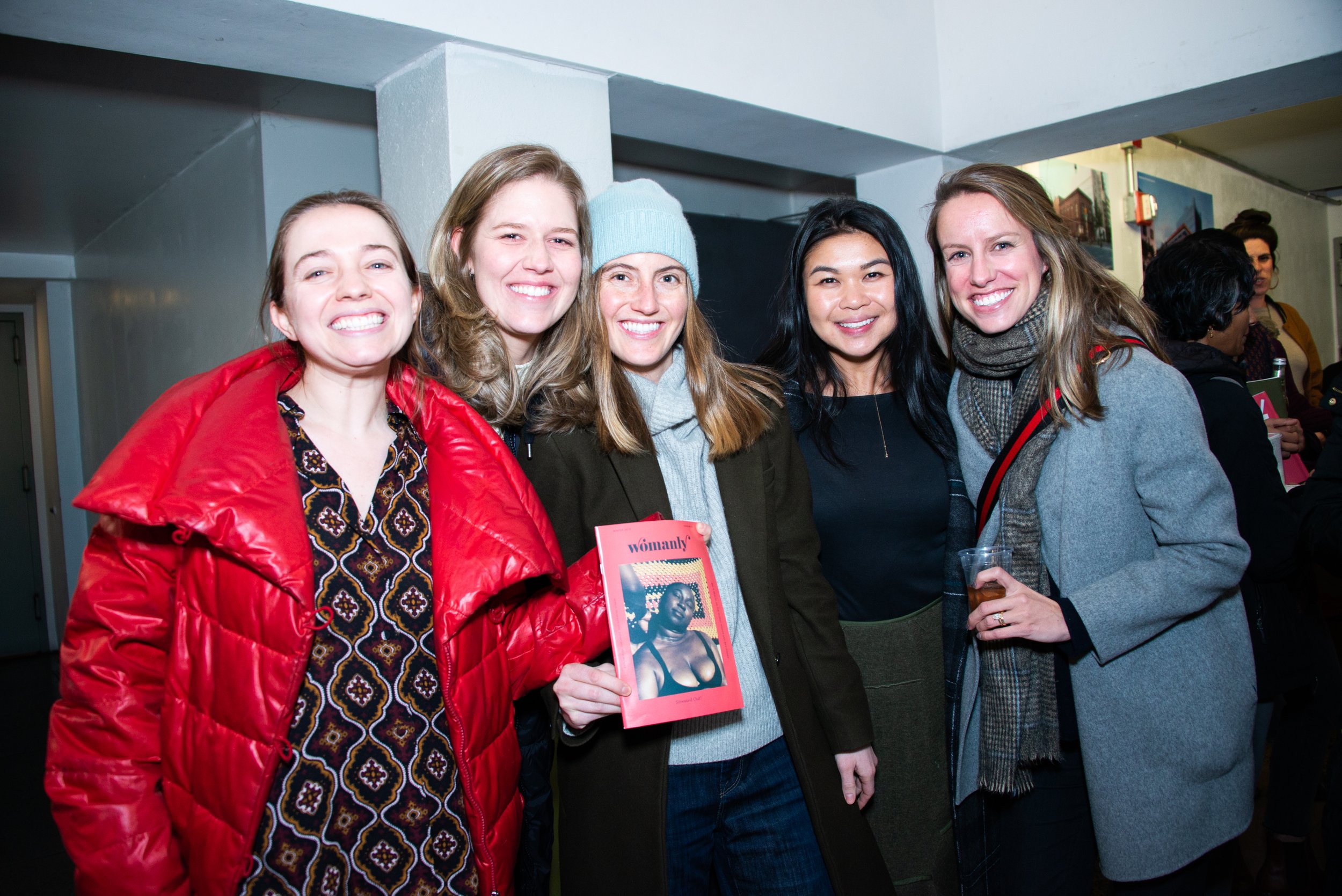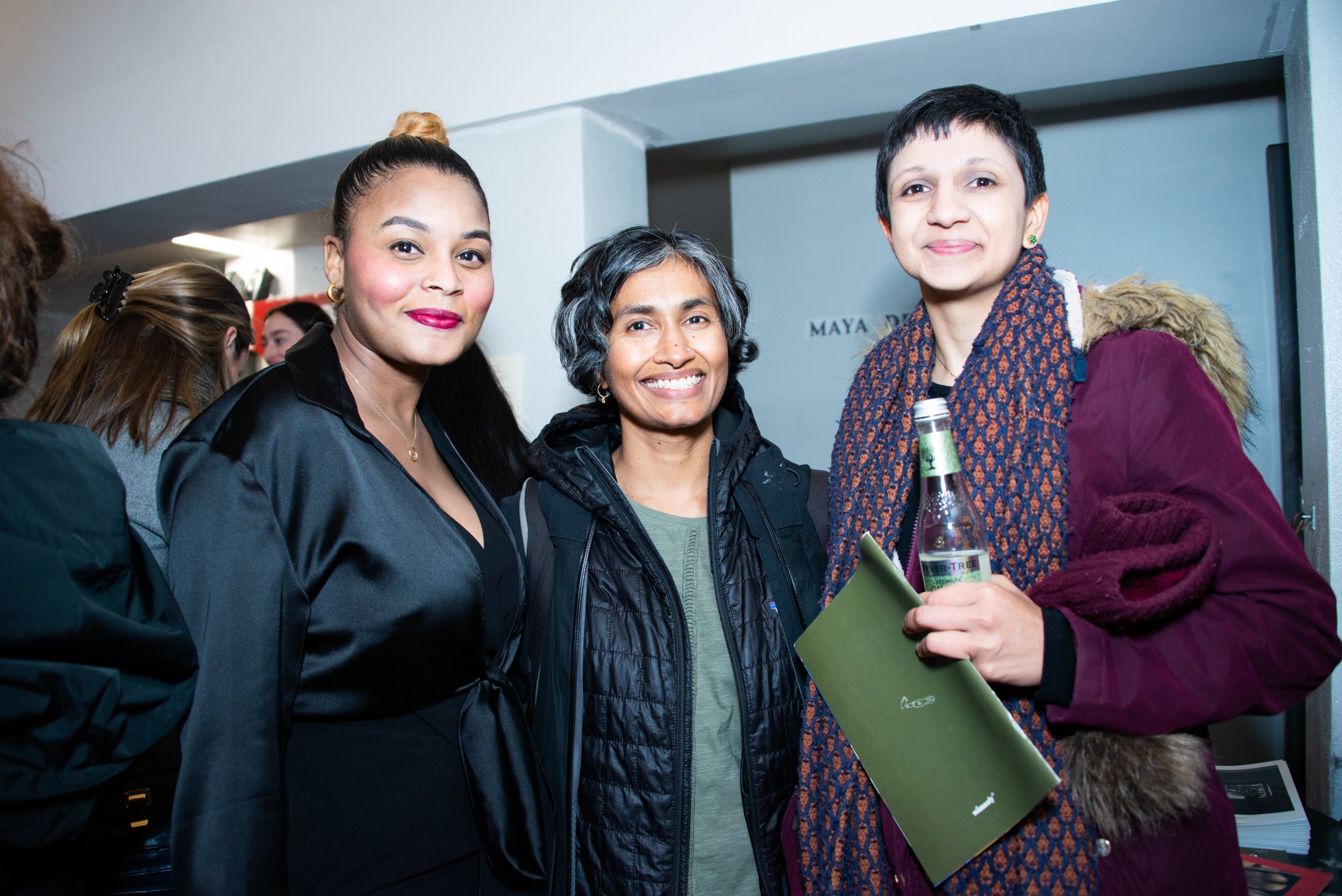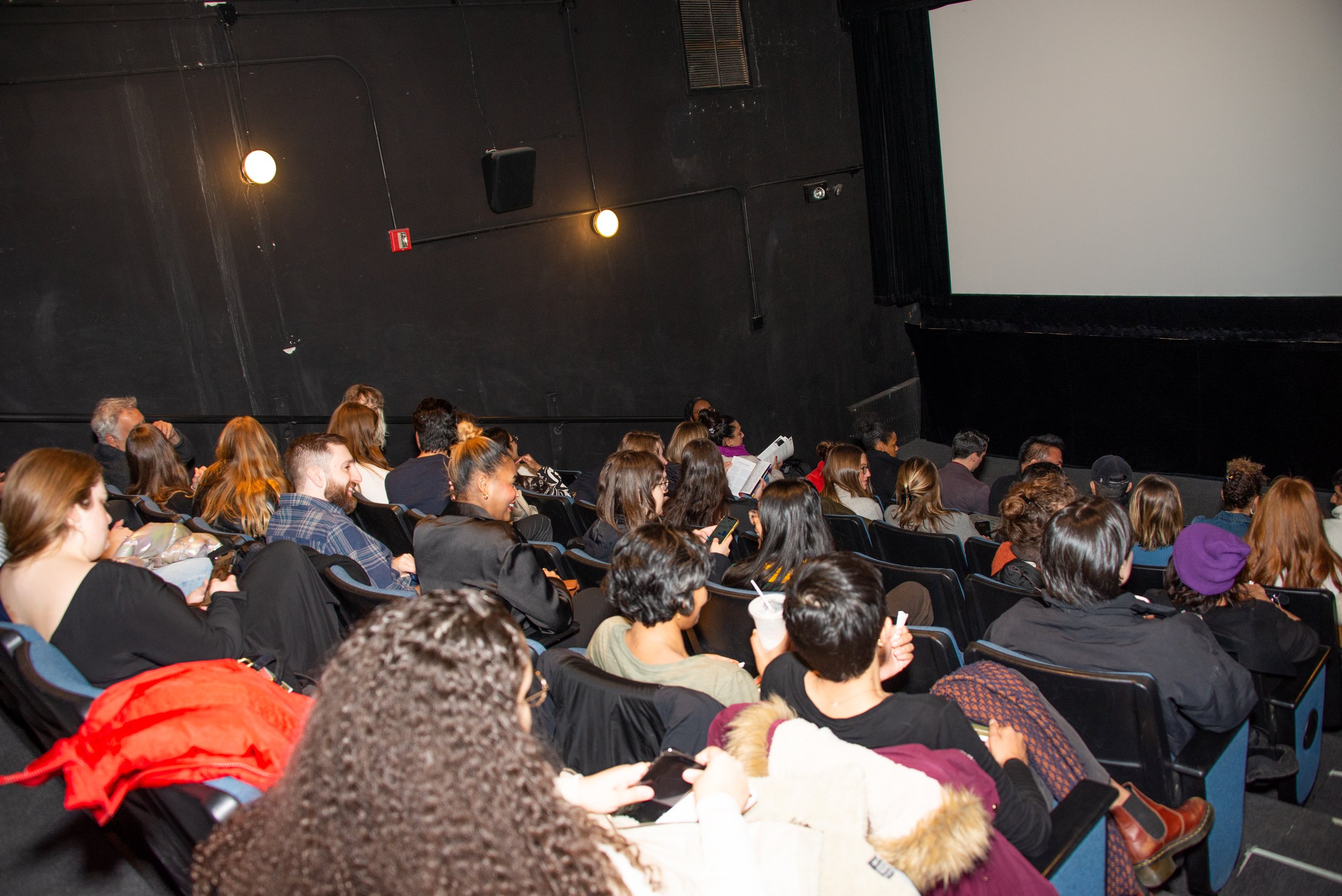On the second to last day of Women’s History Month, we invited our community to join an important discussion, film screening, and activation at Anthology Film Archives in Manhattan to bring attention to the impact of the carceral system on the lives of Black and Brown women. The evening began with a screening of the feature-length documentary, A Woman On The Outside. The moving 2022 film follows the life of Philadelphia native Kristal Bush as she works tirelessly to keep people connected to their loved ones in prison through her nonprofit, Bridging the Gap. The screening was followed by a panel discussion on the film and the impact of incarceration on the lives of women of color with Lisa Riordan Seville, co-director of A Woman On The Outside, and Caryn York, President and CEO of the Women’s Prison Association.
The Women’s Prison Association empowers women to redefine their lives in the face of injustice and incarceration. Forging pathways toward freedom, safety, and independence. To continue raising awareness for their monumental work, we opened up our conversation with Caryn York, who has been leading the organization since 2021. As the organization's youngest and first Black woman President and CEO, Caryn spoke about their impact, history, and why the organization shouldn’t have to be around in another 177 years.
Can you tell us a little bit about the programs and services that the Women's Prison Association offers?
Women’s Prison Association is the nation's first organization to identify the needs of women as being vastly different from men interacting with the criminal justice system. In 1845, the organization was founded to support women and mothers impacted by incarceration and homelessness. The programming that WPA has provided over the past 176 years speaks to the wide range of needs of women behind the fence and those who have come home. This includes Alternatives to Incarceration (ATI) programming, keeping women in their communities and connected with their families. We also connect them with all of the resources and support that they need, that they quite honestly are not going to find when they are behind the fence.
Our team members work with prosecutors and district attorneys to defend women who are caught up in the system as a result of factors like poverty or intimate partner violence, looking for alternatives to prosecution. Years ago at upstate New York facilities, WPA pioneered some of the programming behind the fence that particularly targeted women who were HIV positive, educating them on the different services and medications that should be made available and accessible to them [while incarcerated], preparing them for being away from family, and preparing them for release. Upon release, even back in the 1800s, one of the first things people need is stable housing. There's still this expectation that they’re going to be employed and housed easily, and we know that that's just not the case.
We have a team of transitional case managers, working with the women and walking with them, step by step, because upon release folks ask all kinds of questions like, 'How do I interview? How do I look for an apartment? How do I use a debit card?' It all depends on their experience and it’s really walking the walk with them according to their comfort level. We like to say that our programming really supports women on every step of their journey, wherever it is that your journey has taken you and wherever you decide to go.
“ It can be really difficult to elicit sympathy and support for women. There’s a lot of, “how could you, you’re a woman,” or “you’re a mother.” That’s very challenging. ”
What are some of the challenges that you've experienced since joining WPA?
When I started at WPA in December 2021, I was their youngest President and CEO and their first Black woman President and CEO. I‘m not from New York, I moved here from Baltimore. I’ve spent the night in jail. So my whole approach, experience and understanding of this work, of the challenges and the barriers to opportunity, are completely different [from my predecessors].
99.9% of the women who we serve are Black and Brown. Historically, the folks who make decisions for Black and Brown bodies do not look like the Black and Brown bodies, nor do they come from the communities where the Black and Brown bodies are born, raised, bred and disenfranchised. And so one of the challenges comes from the force with which I advocate, from the clarity, the confidence, the strength in which I bring to this work. These are folks who look like me, these are my sisters, my aunts, my friends; this is my community. How do you remain authentic in advocating on behalf of your population when you're working within a system and an organization that isn't used to that fervor, that energy that you're giving?
The second piece really has to do with something that you find with gender specific programming, particularly in the criminal justice space. Historically, we know that Black men are over-represented in our carceral facilities. Hands down. But in the past 10 years, we've seen more and more women of color being incarcerated and detained with long sentences. The population of women we serve is getting younger and younger and they are serving longer and longer sentences. Coming to WPA, and in talking with some of my other colleagues who do gender specific programming, you find that the grace, the attention, the opportunities, are not the same for women. It can be really difficult to elicit sympathy and support for women. There’s a lot of, “how could you, you're a woman,” or “you're a mother.” That's very challenging.
On that, I would love to understand how trans and non-binary folks are treated within the prison system and where the differences are there. How is WPA working towards creating more equity in serving their needs?
When it comes to our trans community and those who identify as non-binary, the prison system is horrible. It's not conducive, it's not supportive, it's not accommodating in any way, shape, or form. Partnering with community based organizations that support trans women and non binary people has been our approach. Thankfully, in the past couple of years, there's been some specific programming, institutions, and organizations that have been established that speak specifically to that population. We're working with the Department of Corrections to create support groups for trans women behind the fence, so that there’s space where they can talk about their challenges and raise them to correctional leadership with some force.
What does it mean to have health care while you're in prison, or when you're coming out of prison?
All correctional facilities must provide some level of health care. Is it the best? Hell no. Not even close. What organizations like WPA tend to do is take a dual approach. We are working with correctional facilities and leadership around healthcare vendors. What are the options? How do you ensure that [vendors and providers] are culturally competent? Then you have mental health care that I think everyone is trying to figure out, because it's going to manifest in so many different ways. At WPA, we run residential facilities for formerly incarcerated women, and we find that their mental health challenges are starkly different. They are more pronounced in areas that may not be the same for people who haven’t been incarcerated. So we’re ensuring that we're building out clinical care in a way that supports both the formerly incarcerated women and children of incarcerated parents.
The majority of the women we serve are Black and Brown, and they know very well about the history of medicine and health care behind the fence, where people were being used as test subjects, right? And so there's a healthy resistance, and fear of health and health care, when you are behind the fence, and when you come home. We’re working on getting our women to feel better about being honest about what their health needs are and advocating for their health needs and the needs of their families. When they express fear, we need to provide more information if we want more engagement.
I'll give you an example. Currently the Department of Health is trying to work with WPA to encourage women behind the fence to take a drug that will prevent HIV. The women are very fearful because the department is not providing much information on the side effects. And they're like, here we go again. You all are trying to pilot this drug with us without being really clear about what all of the side effects are.
All of this also connects to stress. We don't really talk about stress and health, right? The stress of having to reenter and get back on your feet, what that does to your body. You're going back to communities where you might not have healthy food access, or you can't afford it. A lot of times folks just think that health looks like having a doctor, but it’s so much more complicated than that.
You joined WPA in 2021, a year into the pandemic. Research has shown this pandemic has caused spikes in domestic violence cases, contributing to a system of violence and insecurity, especially for women. That must have created so much additional stress and trauma on not only individuals but on organizations working to support the folks impacted. I appreciate the work you do. It's profoundly important. What are you most proud of so far in your work?
That's always a difficult question for me because it's a team effort, we do this together. WPA has been around for 176 years, and we are a legacy organization. Many times with these types of organizations, you're so used to doing the same thing over and over and over again, and not really thinking of how to do anything differently. And so if there's anything that I can say that I'm proud of it is that I came through the door, kicking it open, and was like, we're redesigning this organization to meet the needs of the women of today and in the future.
Our job is to put the Women's Prison Association out of business. We should not be around for another 177 years. We should not have to exist. So what does it look like to think differently about how we're doing our programming? How can we dig deeper into clinical care? How can we start to expand the residential housing that we're offering so that historically, we're not just in one neighborhood. Let's be where they need us; let's get into Brownsville and the Bronx, we need to be in all of these places where the women are returning and they're saying 'We need you.' We are getting feedback from the community and partners. This is what they have been waiting for. I'm really proud of how WPA is stepping into its new phase of existence. I'm proud of the different services that we're able to provide women. I'm looking forward to what the future holds.
Is there anything else that you wanted to share?
I want to make sure that we don't forget about those who are not fortunate enough to stay on the outside and be able to circumvent corrections. There are women who end up getting caught up, and it could be any one of us. We were just lucky not to get caught. Take a moment to understand what it is like to be in a position where you feel like your only option is one that may not be legal. And you move forward with that option, knowing that this could land you in jail. There are so many women who are having to make those decisions every day. Some get caught, many don't. For those that do get caught, how do we make sure that we're wrapping them with support? Because they need it while they're behind the fence but also, if you are not sentenced to life, you are coming home and they are really going to need it. These are our mothers, our grandmothers many times when they're coming home. These are the heads of our household. And if we are not giving love, care, attention and compassion to them, then we will continue to see our communities, our neighborhoods, our villages burned to the ground.
How can folks support your work?
We're going through a number of transitions, so folks can still follow us on social media and on our website. Join our mailing lists.


